Scientific Laboratories
The Chemistry lab, founded in August 2014 with Mongolian government support, enhances practical application of theoretical chemistry knowledge. Its main goal is to develop students' experimental and analytical skills, promote teamwork, and emphasize health and safety protocols. The lab accommodates 15 to 17 students and is used for "General Chemistry" in BEP and Bachelor programs, as well as modules in Analytical Chemistry and Environmental Engineering. It also supports research projects and is equipped with cutting-edge tools like the Isoperibol Calorimeter 6200 and the CS996 Infrared Carbon Sulfur Analyzer. Essential apparatus such as glassware, fume hoods, a muffle furnace, centrifuge, and digital microscopy aid in data collection and precision measurement techniques.
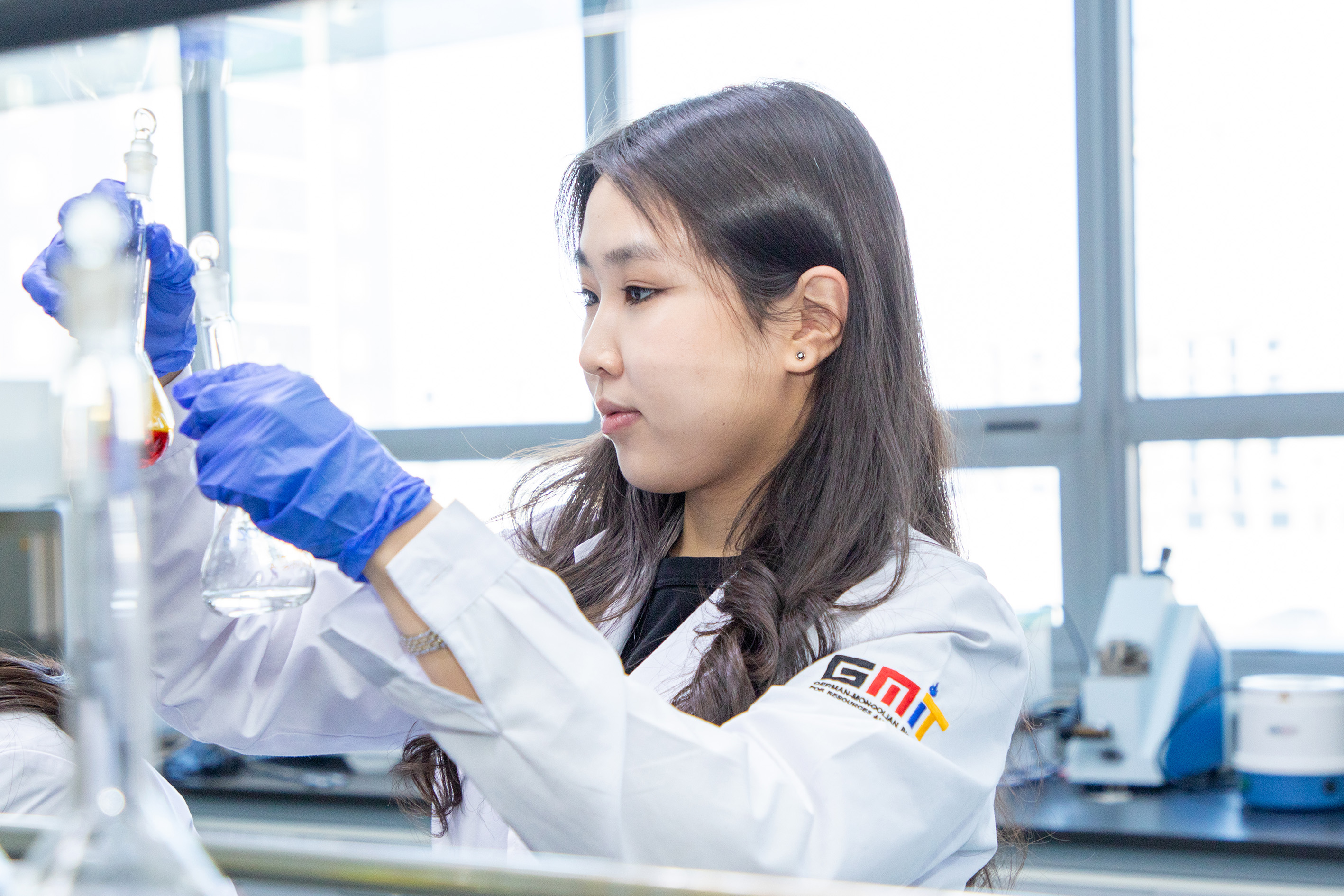
.JPG)
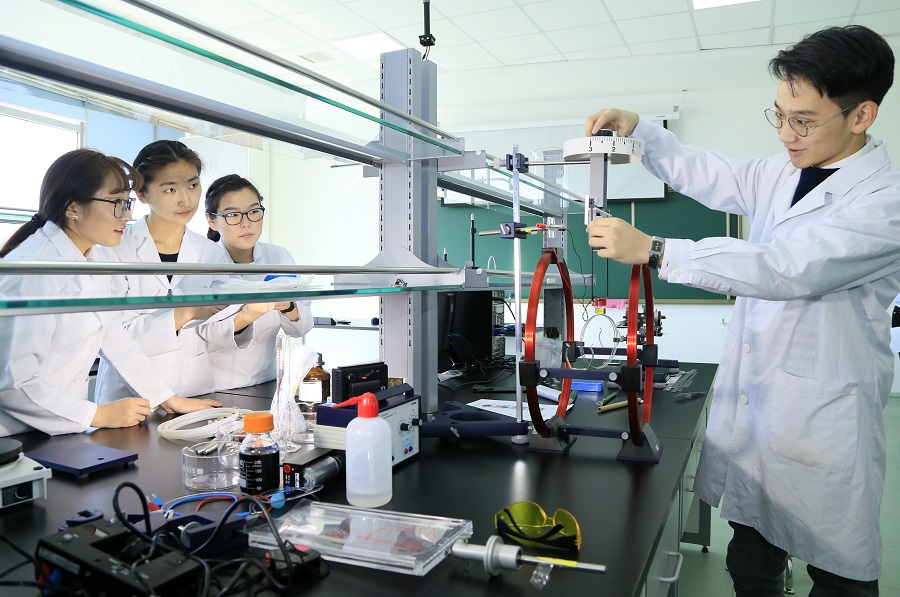

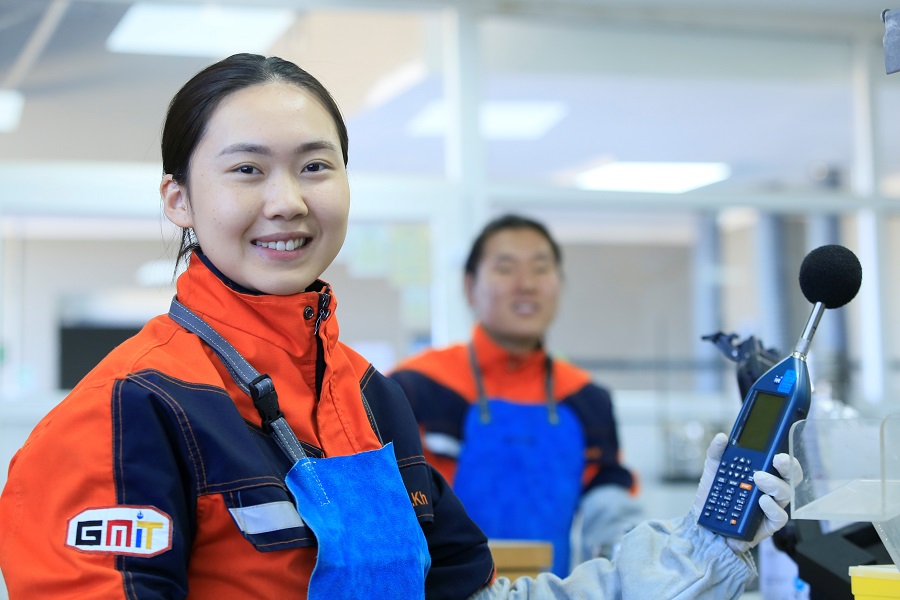
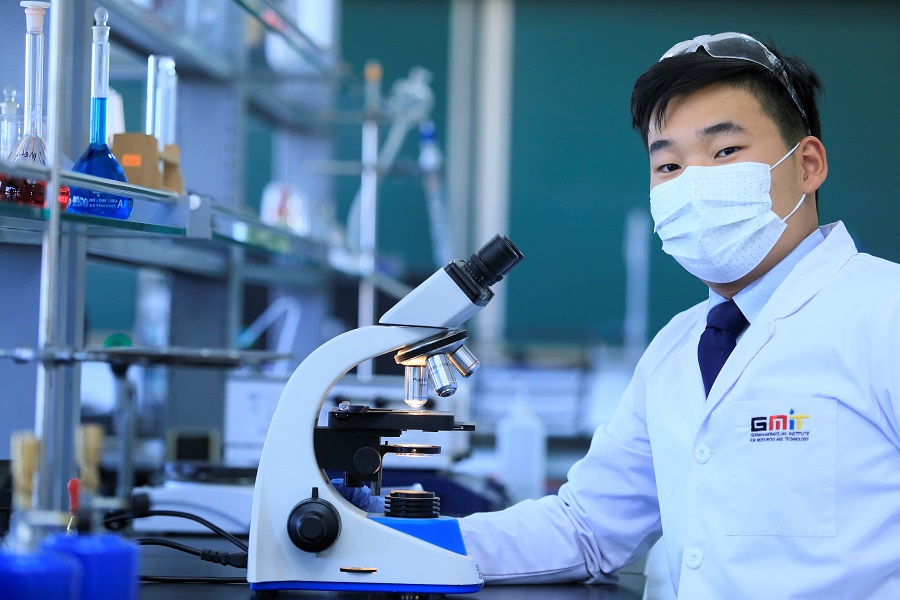
The Mechanical Engineering workshop at GMIT was established in 2018 with essential tools like band saws, grinders, lathe machines, vibration analyzers, arc welders, digital oscilloscopes, roughness testers, universal testing machines among others. It is primarily used by the Robotic Club and Mechanical Engineering (ME) students for assembling and testing innovative prototypes like wool fertilizer machines and automatic coal stoves. Projects such as a small gasoline engine were set to commence development in winter 2023.
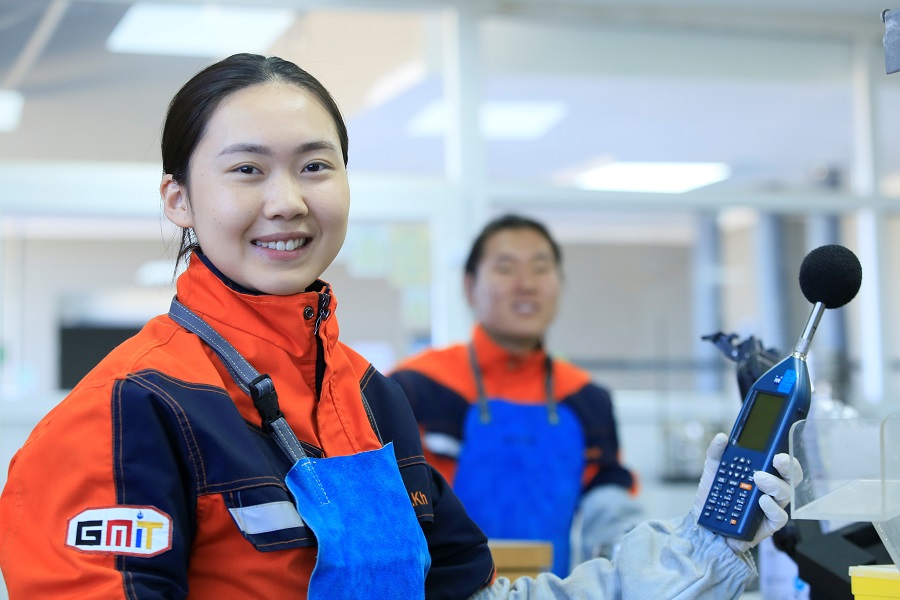

The Physics lab provides hands-on experience for students to apply theoretical concepts learned in lectures. Its objectives include deepening understanding of physical principles, enhancing experimental skills, and fostering a scientific mindset. Students conduct experiments illustrating key concepts like mechanics, electromagnetism, and thermodynamics. They gain competencies in data analysis, precise measurement techniques, and experiment planning and execution. The lab upgrades introduce modern equipment and improved safety measures. For students from rural areas, introductory sessions familiarize them with the equipment and procedures to ensure comfort and confidence in the lab setting. Curriculum adjustments include extra lab sessions to bridge theory-practice gaps for students struggling with complex concepts.

The Processing lab at GMIT is equipped with various instruments such as jaw crushers, ball mills, magnetic separation devices, particle size analyzers, flotation cells, and hydrocyclones. It supports modules like Coarse Comminution Machines for mineral preparation, Applied Geoscience for mineral identification, Raw Materials and Recycling for waste separation analysis, as well as Materials Sciences for tensile tests using a universal testing machine.
Established in April 2018, the Environmental Engineering lab at GMIT focuses on water quality, soil science, and air quality. Advanced equipment like the Idexx Colilert system and biosafety cabinets are used for water hygiene assessment. Multiparameter probes (YSI and Hannah) and COD/BOD test systems analyze physical/chemical parameters. Various tools facilitate modules including Principles Water Technology, Water Supply, Wastewater Treatment, Soil Sciences, air pollution monitoring using TSI DustTrak and Multi gas analyzer. Weather sensors on the dormitory roof and GMIT yard monitor environmental conditions.
The Mechanical Engineering workshop at GMIT was established in 2018 with essential tools like band saws, grinders, lathe machines, vibration analyzers, arc welders, digital oscilloscopes, roughness testers, universal testing machines among others. It is primarily used by the Robotic Club and Mechanical Engineering (ME) students for assembling and testing innovative prototypes like wool fertilizer machines and automatic coal stoves. Projects such as a small gasoline engine were set to commence development in winter 2023.

